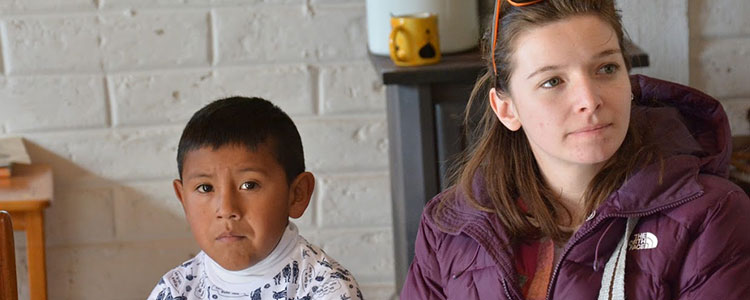Editor’s note: This post was written by Everett Egginton ’65, professor emeritus at New Mexico State University.
Last January, I had the privilege and honor of accompanying eight talented Colgate pre-med students on a pivotal journey to Chihuahua, Mexico. We were accompanied by two close friends and former colleagues: Dr. Raul Favela, chair of the University of Chihuahua Medical School’s Dept. of Reconstructive Surgery, and Professor Herman Garcia, a world-renowned bilingual education scholar.
Our journey together took us to a variety of places, including New Mexico State University to witness programs for the area’s marginalized refugee population. We went to the University of Texas at El Paso to learn about its border-health commitment and its work on behalf of the region’s vast, largely undocumented migrant communities.
Then, we crossed the border to Juarez and Chihuahua City, Mexico, to learn firsthand from the Mexican perspective about the activities of the Bi-national Commission on Border Health, the Universidad Autonoma de Chihuahua, and the Fundación del Empresariado Chihuahuense, A.C.
Most importantly, our odyssey took us to the Sierra Tarahumara region of Chihuahua — the predominantly indigenous, geographically remote, mountainous, and formerly cartel-controlled area of the state — where, for five days, we observed the urgent and vital medical care provided to the region’s indigenous population by state-run and nonprofit hospitals.

Caroline Correia ’17 with a student from the preschool Comunidad Educativa Tamujé Iwigara in Creel, Chihuahua
Here, we witnessed life-saving health care delivery by volunteer MDs who neither ask for nor receive compensation for their services. These hospitals and all their equipment, plus the living costs of their surgeons, physicians, nurses, and administrators, are totally dependent upon donations, largely from faith-based groups both from within and outside of Mexico.
Our last evening together was spent back in Chihuahua City, at the home of Dr. Favela and his wife, Maru. We were warmly and generously feted by a large entourage of Mexican medical and university personnel, there to thank Colgate students for their interest and concern.
I was unable to speak for a moment as I looked out over the bi-national assembly. Brought together by mutual love and respect, we constituted a human bridge between two countries and cultures. I recovered myself and offered a toast to all our Mexican hosts and friends — present and absent — who had made the week-long Chihuahua portion of our journey so poignant, eye-opening, and successful, telling them that they were the most wonderful neighbors that any nation could hope to have.
By opening their homes, communities, clinics, hospitals, and, most importantly, their hearts to members of the Colgate community, these exceptionally talented, incredibly generous, and kind people showed all of us how much could be accomplished with so little. It was a journey that changed our lives forever.
For more information regarding off-campus study opportunities at Colgate, visit the Center for International Programs.
